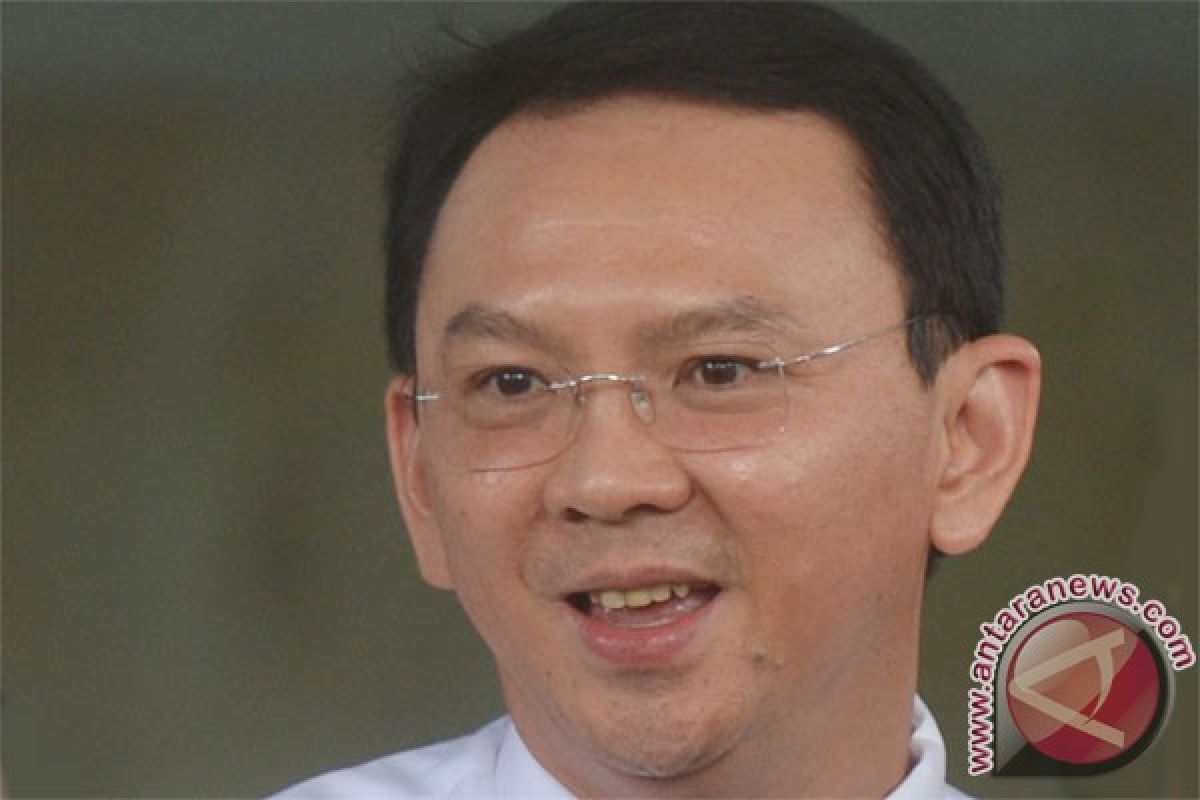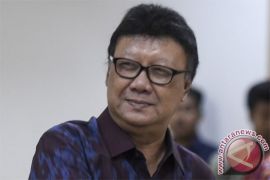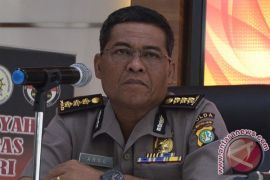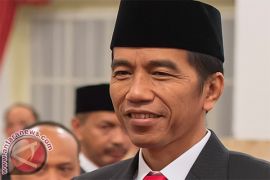Jokowi, former mayor of Solo, and Ahok, former district head of East Belitung, were sworn in, respectively, as Jakartas governor and deputy governor on October 5, 2012.
Two years later, on Oct. 6, 2014, Jokowi resigned from his gubernatorial seat, after he won the presidential election in 2014.
But, Ahoks ascension was not automatic, as Jakartas legislators from the Great Indonesia Coalition (KIH) and the Red and White Coalition (KMP) have differing interpretations about the laws on the governorship.
The KMP legislators demanded that the laws be reviewed by the Supreme Court (MA) to receive their verdict as to whether Ahok could automatically succeed Jokowi or whether the Jakarta Regional Legislative Council (DPRD) should elect a new governor.
But, instead of waiting for the MAs decision, the Chairman of the Jakarta DPRD decided to hold a special plenary meeting on Nov. 14, 2014, to announce Ahoks automatic appointment as the next governor.
"The chairman of Jakartas Regional Legislative Council has officially announced, and proposed to the President through the Home Affairs Minister, the appointment of the Acting Jakarta Governor as Jakarta Governor," Jakartas DPRD chairman Prasetyo Edi Marsudi of the Indonesian Democratic Party of Struggle (PDIP), which leads KIH, stated at the plenary meeting, which lasted for only 10 minutes and was attended by 42 legislators from KIH, out of Jakarta DPRDs 102 legislators.
The four DPRD deputy chairmen, including M Taufik of Gerindra, Triwisaksana of PKS, Abraham Lunggana of PPP, and Ferrial Sofyan of the Democrat Party, and the remaining DPRD legislators from KMP, did not attend the meeting.
The DPRD chairman explained that the special plenary meeting was held to follow up on the letter of recommendation to the Home Affairs Minister.
"After the plenary meeting, the proposed letter was sent to the President through the Ministry of Home Affairs. We sent the letter on the same day, so the inauguration could be held at the earliest," Prasetyo Marsudi said.
However, the PDIP politician did not know when Ahok would be inaugurated, as the authority to take a decision on the matter rests with President Jokowi.
Ahoks appointment as Jakartas governor has also faced opposition from mass organizations, including the Front for the Defense of Islam (FPI), the Jakarta Community Movement (GMJ) and the Front of Islamic Community (FUI).
They have charged that several policies put in place by Ahok have been harmful to Muslims. They specifically questioned Ahoks policies, including the demolition of two mosques in Cikini and Jatinegara; the reduction of the city administrations assistance to non-formal Islamic learning groups (majlis talim) from 900 majlis talim to only 80; and the reduction in the quota for mosque construction from one thousand to 300 mosques per year.
Last Nov. 10, 2014, thousands of members and supporters of FPI, FUI and GMJ staged a rally, led by FPI Chairman Muhammad Rizieq, against Ahok.
The peaceful rally was one of a series of protests organized every Friday by the mass organizations to oppose Ahok. In early October, a similar rally had resulted in a clash between FPI supporters and Jakarta police officers.
In response to the rally, Ahok said that if the FPI continued to create problems, he would urge the justice and human rights ministry to disband the FPI.
He said Indonesias laws guarantee freedom of expression to all its citizens. But, if they conduct an anarchic and dangerous rally, then those charged with enforcing the law must act firmly, Ahok stated on Nov. 10.
Further, during an event attended by Deputy Chief of Jakarta Police Brigadier General Surjano and the heads of the Jakarta police agencies in Jakarta on Oct. 14, 2014, Ahok had remarked that those committing anarchic acts should be shot on the spot.
Ahok had also stated that a human rights activist had once asked about his views on human rights violations in the capital city.
"My response was simple. I want the 10 million inhabitants of Jakarta to have their heads, stomachs, and wallets full. They should go to school, get educated, must be spiritually good, artistic, happy, healthy, and have full stomachs, besides owning wallets with good purchasing power. But, if there are 1,000-2,000 people threatening the lives of those 10 million, and I warn them but they disobey me, then I will order killing on the spot, even if there is a television camera rolling," Ahok was reported as saying by MetroTVNews.com on Oct. 14, 2014.
Chief of the National Human Rights Commission (Komnas HAM) Ottio Nur Abdillah had regretted Ahoks statement about killing protesters.
According to Abdillah, as quoted in the Republika Daily on Oct. 15, 2014, Ahoks statement was dangerous since Ahoks subordinates might incorrectly interpret his words and execute anarchic demonstrators.
KH Said Aqil Siroj, the general chairman of Nahdlatul Ulama (NU), advised Ahok to remain ethical in both his speech and actions.
He said on Nov 14 that he supported Ahoks appointment as the governor of Jakarta and expected people in Jakarta to support him, as Ahok has been a legitimate leader.
However, Siroj emphasized, that did not mean Ahok could act as he liked or hurt the feelings of the people he was leading.
On a separate occasion, the general chairman of the executive board of Pagar Nusa, which is the NUs martial art organization, Aizuddin Abdurrahman, urged Ahok to change his behavior.
Gus Aiz (as Aizuddin is popularly called) said Ahoks behavior did not reflect that of a leaders.
"A leader must be able to spread a peaceful and protecting atmosphere. He must not cause restlessness or division among the people," said the grandson of late KH Hasyim Asyari, founder of the NU, one of the largest Islamic organizations in Indonesia.
Guz Aiz, meanwhile, also reminded FPI to reform itself if it did not want to be dissolved.
"The FPI must set the right example of how to conduct Islamic propagation. If it fails to do so, it will spoil the future generations," he added.
He stressed the FPI must accept the reality of pluralism in Jakarta, as well as Indonesia.
"If Ahok is rejected for being a non-Muslim, then that will be racism. Such a rejection will harm Indonesias pluralism. The Unitary State of the Republic of Indonesia (NKRI) is founded upon the principle of rahmatan lil alamin (for the good of all)," he said.
To end the conflict between FPI and Ahho, the Indonesian Ulema Council (MUI)s Jakarta Chapter Chairman, KH A Syarifuddin Abdul Ghani. has expressed his willingness to act as a mediator.
"We had a dialog with the Jakarta Regional Legislative Council (DPRD) to try to mediate the conflict between the Front (FPI) and the acting governor," Ghani said recently.
He expressed hope that they could resolve the problem soon, so it would not become more complicated.
Regarding Ahoks intention to dissolve the FPI, he observed that such actions would make the problem even worse.
Also, Deputy Chairman of the Indonesian Ulema Council (MUI) KH Maruf Amin said the conflict between the FPI and Ahok should be handled wisely and through dialogs.
(T.F001/INE/KR-BSR/O001)
Reporter: Fardah
Editor: Priyambodo RH
Copyright © ANTARA 2014












